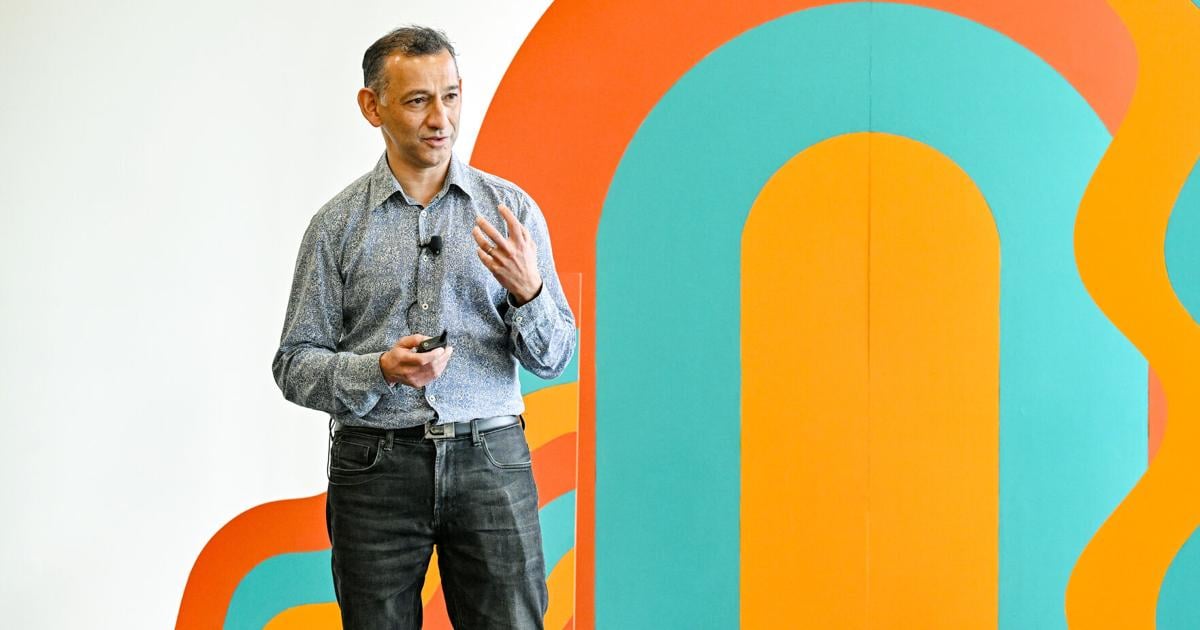Shazam co-founder gives advice to Baton Rouge entrepreneurs | Business

The theme of this year’s Baton Rouge Entrepreneurship Week was “Stayin’ Alive,” and one of the keynote speakers said the Bee Gee’s disco-era classic is appropriate for people who are launching fledgling businesses.
Dhiraj Mukherjee is one of the co-founders of Shazam, the popular song identification app that was purchased by Apple for a reported $400 million in 2018. Shazam took off when it was introduced in the Apple App store in 2008 because customers liked to be able to quickly identify songs playing on the radio or in a restaurant or bar.
Shazam had been around since 2002, during the early days of cell phone technology. Back then, to use the service customers dialed a number on their mobile phone, a number would pick up, listen to the music for 30 seconds, then send a text that identified the song that was playing.
“We were stayin’ alive, doing whatever it takes not to run out of cash,” Mukherjee said during a speech Thursday morning at Mid City Tower. “If you run out of cash as an entrepreneur, you are dead.”
Mukherjee and the other founders used all sorts of methods to get Shazam off the ground. They created a digital signal processing system that identifies the unique audio fingerprint of a song. To build up a library of songs to make the identification possible, they cut a deal with one of the United Kingdom’s biggest distributors of music. They also manually ripped songs off of millions of CDs, a process that took months. They even made their own cheap computers and stuck them in racks to store songs because they didn’t have the money to buy equipment.
“It was all about survival,” he said. “Because if you run out of cash, the party is over.”
As CD sales dropped and customers flocked to downloading services such as Napster, Mukherjee said Shazam pawned its technology. They sold the identification service to a company that managed song rights, so the company could monitor what songs were playing on the radio and collect royalties.
Getting on the Apple store and integrating Shazam’s technology with the iPhone was a huge step for the company, Mukherjee said. It took Shazam 10 years to get to a billion users, but a year to get a billion more, then two months to get another billion.
“We were very, very lucky,” he said. “It was a case of the stars aligning.”
But other factors went into the success of Shazam, he said. The founders believed in themselves and each other. They were monofocused, working on nothing but the companies. But he said they had fun and didn’t take things too seriously. “Every day was an adventure,” Mukherjee said.
Mukherjee now works as an investor, putting money in more than 250 companies that are involved in everything from using geothermal technology as a source of clean power to businesses that use technology to eliminate racial biases in hiring.
The other keynote speaker is also involved in helping entrepreneurs.
Felecia Hatcher, is CEO of Black Ambition Prize, the program launched by pop music star Pharrell Williams that backs companies with Black, Hispanic and HBCU founders. As CEO, Hatcher has invested in 100 entrepreneurs, awarding them prizes that range between $25,000 and $1 million.
“I lead a rocket ship for Black entrepreneurs,” she said. “I would never be able to give capital in that kind of a way.”
Building Black Ambition taught Hatcher what it means to be ambitious.
“Tom Ford said if you believe that you can do it or you believe that you can’t do it, either way you are right,” she said.



